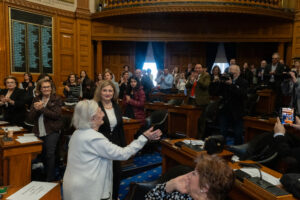By Edmond Y. Azadian
Political maneuvers, public actions and summit meetings leading to the 95th anniversary of the Armenian Genocide created an atmosphere of gathering a storm. Today is the aftermath of that storm and the scene is open for evaluation.
Turkey used its political clout for damage control, while the Armenian government and Armenians around the world used the opportunity to further develop awareness around the Genocide.
Demonstrations around the world — from Moscow to New York — certainly had their impact not only on the Armenian youth, but also non-Armenians. Statesmen from different countries certainly received a refresher course in history and they also offered remarks, indicating that the struggle for Genocide recognition was gaining ground.
Major newspapers, talk show hosts and editorial columnists covered the Genocide story, mostly in favorable terms. The Washington Post, Wall Street Journal and KFI radio talk show host Bill Handel took President Obama to task for reneging on his solemn pledge to recognize the Genocide.
As anticipated, once again, President Obama avoided using the “g” word in order not to offend Turkey. One would wonder how a country like France is not scared of Turkey in adopting a law against genocide denial and the world’s only superpower gives in to Turkish blackmail. The excuse is that offending Turkey may jeopardize Armenian-Turkish negotiations, whereas, only pressure on Turkey can bear fruit.









